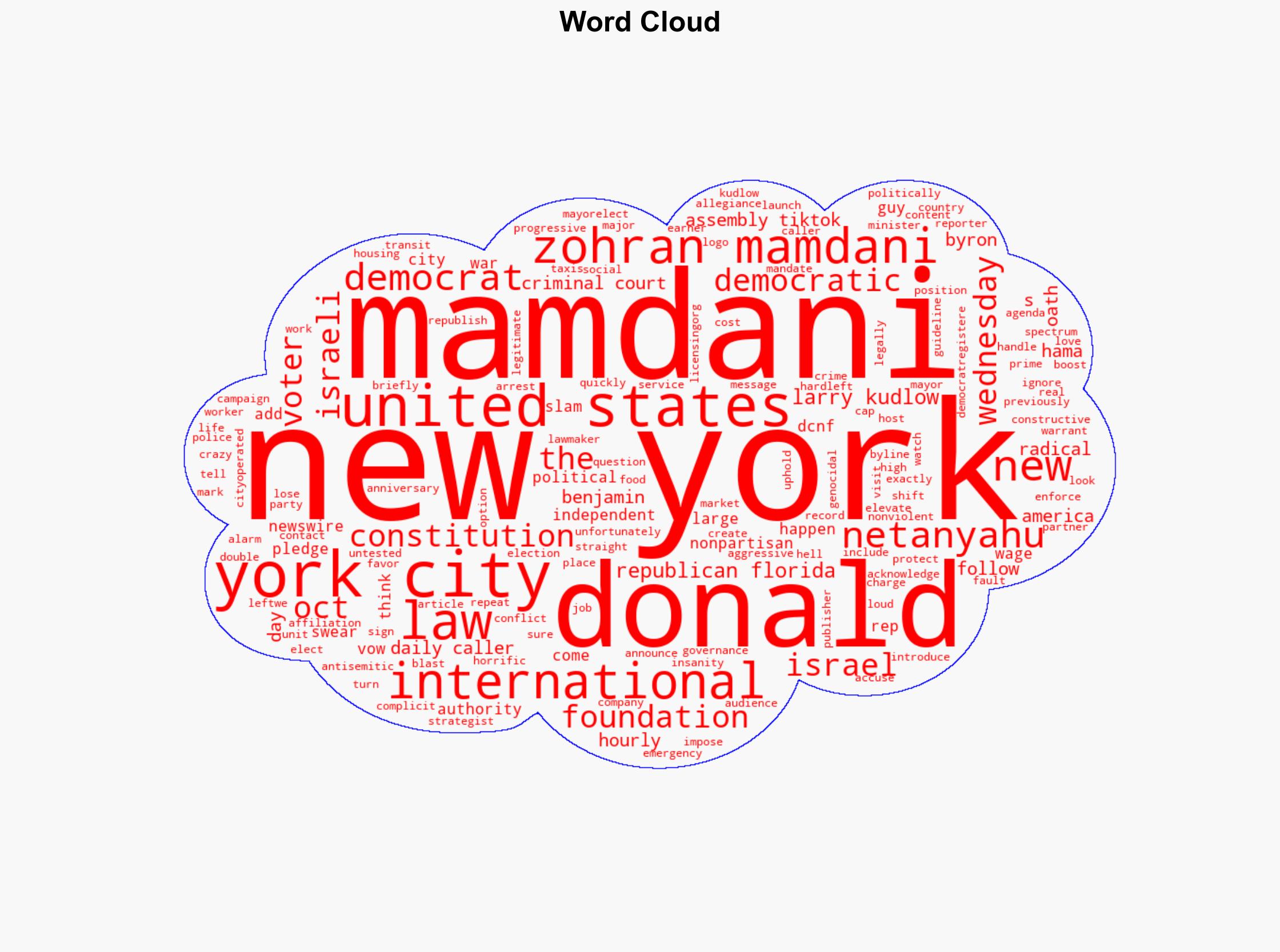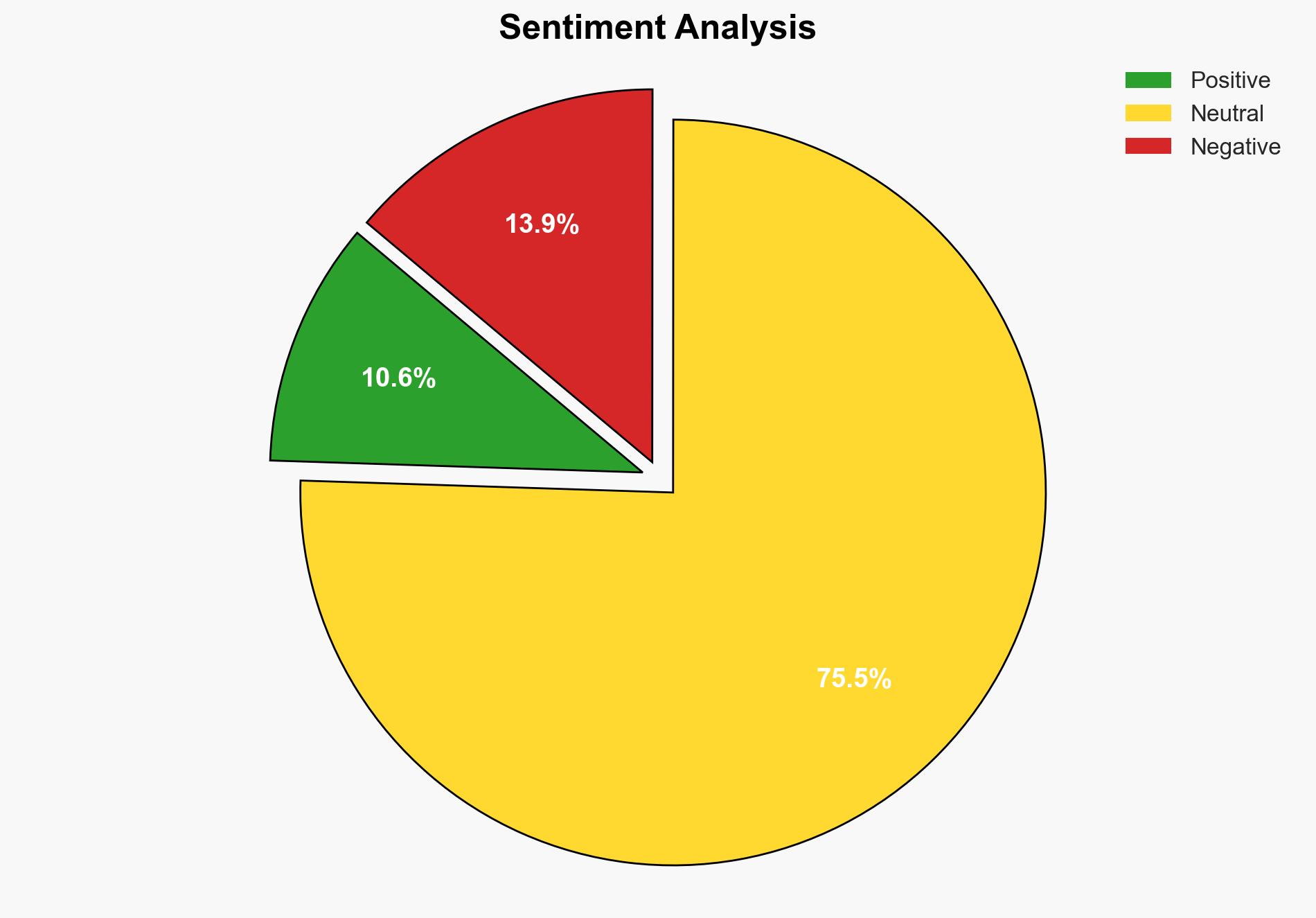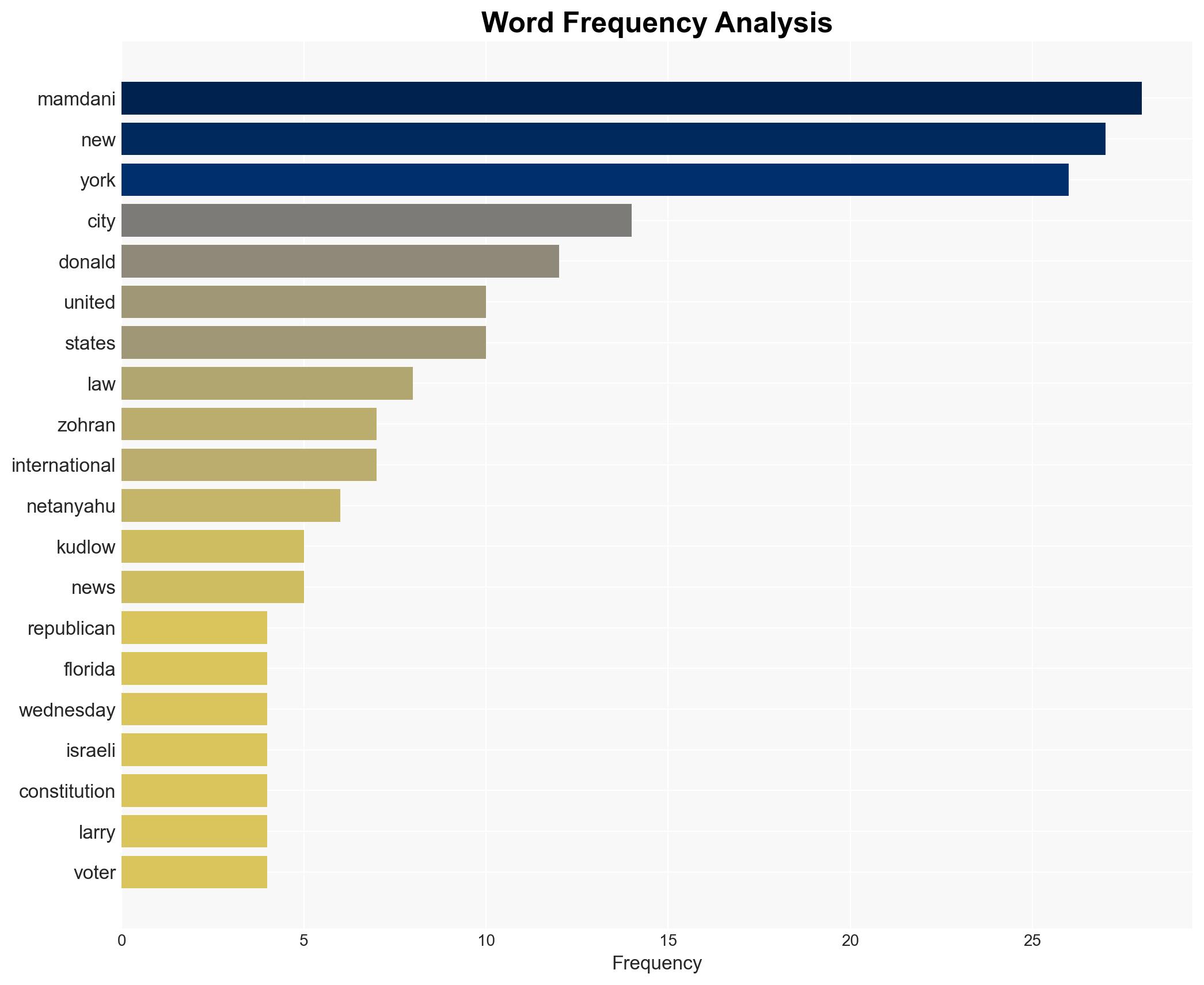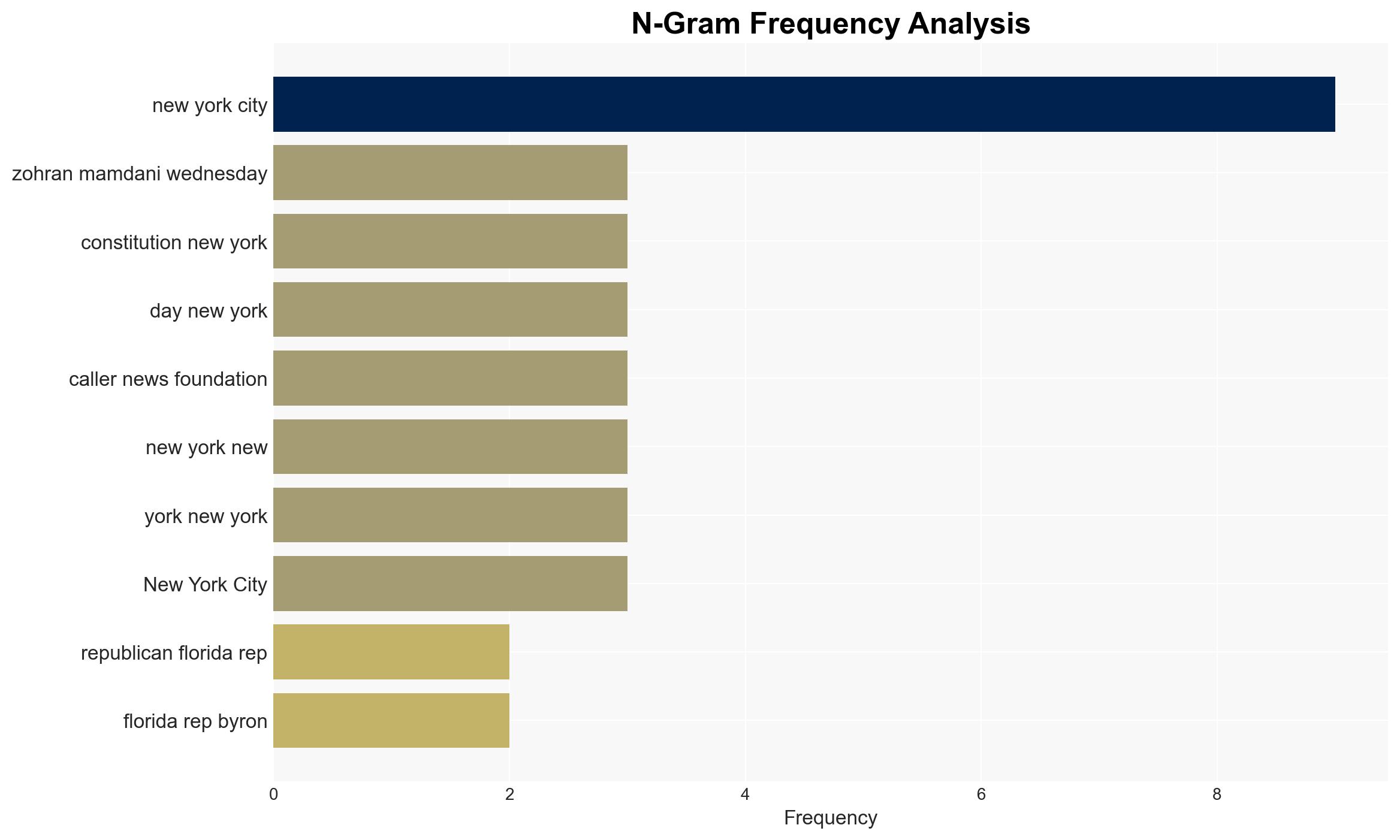That Is Insanity Byron Donalds Has To Remind Mamdani Why He Cant Force NYC To Follow International Law – The Daily Caller
Published on: 2025-11-20
AI-powered OSINT brief from verified open sources. Automated NLP signal extraction with human verification. See our Methodology and Why WorldWideWatchers.
Intelligence Report:
1. BLUF (Bottom Line Up Front)
With moderate confidence, the most supported hypothesis is that Zohran Mamdani’s stance on enforcing international law in New York City is primarily a political maneuver aimed at appealing to a progressive voter base, rather than a feasible policy initiative. Recommended action includes monitoring the political discourse for shifts in public opinion and potential legal challenges that may arise from such statements.
2. Competing Hypotheses
Hypothesis 1: Zohran Mamdani’s statements about enforcing international law in New York City are primarily symbolic, intended to galvanize progressive support and highlight perceived injustices, without a realistic expectation of implementation.
Hypothesis 2: Mamdani genuinely intends to pursue policies that align New York City with international law, reflecting a broader shift towards global governance principles among some progressive factions.
Hypothesis 1 is more likely, given the legal and constitutional constraints that make the enforcement of international law by a city government impractical. Additionally, the political context suggests a strategy to appeal to a specific voter demographic.
3. Key Assumptions and Red Flags
Assumptions: It is assumed that Mamdani’s statements are primarily rhetorical and that he lacks the legal authority to enforce international law over U.S. federal and state law.
Red Flags: The potential for Mamdani’s rhetoric to be perceived as anti-Semitic could alienate moderate voters and escalate tensions within the Democratic Party. Additionally, there is a risk of misinterpretation or manipulation of his statements by political opponents.
4. Implications and Strategic Risks
The primary risk is political polarization, which could lead to increased factionalism within the Democratic Party and influence upcoming elections. There is also a potential for legal challenges if any attempt is made to implement policies based on international law, leading to resource diversion and public controversy. The discourse could further strain U.S.-Israel relations if perceived as undermining national foreign policy positions.
5. Recommendations and Outlook
- Monitor political discourse and public reaction to Mamdani’s statements to assess shifts in voter sentiment and potential impacts on upcoming elections.
- Engage with legal experts to clarify the limitations of city governance concerning international law to preempt potential legal challenges.
- Best-case scenario: Mamdani’s rhetoric successfully mobilizes progressive support without significant backlash, leading to increased voter engagement.
- Worst-case scenario: Statements lead to significant political and legal conflicts, damaging party unity and public trust.
- Most-likely scenario: The issue remains largely rhetorical, with limited practical impact but potential influence on future political narratives.
6. Key Individuals and Entities
Byron Donalds, Zohran Mamdani, Benjamin Netanyahu
7. Thematic Tags
Counter-Terrorism, Political Strategy, U.S. Domestic Politics, International Law
Structured Analytic Techniques Applied
- ACH 2.0: Reconstruct likely threat actor intentions via hypothesis testing and structured refutation.
- Indicators Development: Track radicalization signals and propaganda patterns to anticipate operational planning.
- Narrative Pattern Analysis: Analyze spread/adaptation of ideological narratives for recruitment/incitement signals.
Explore more:
Counter-Terrorism Briefs ·
Daily Summary ·
Support us





